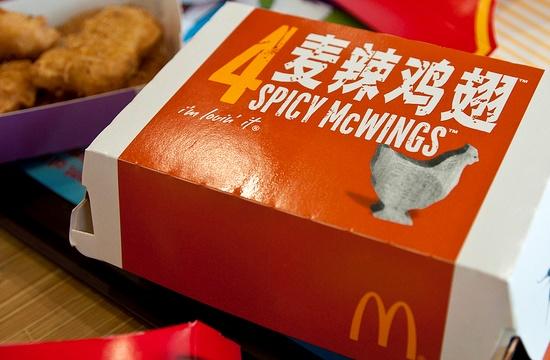McDonald's Corporation yesterday announced it will phase out the use of the highest-value human antibiotics in its global chicken supply and signaled that it will take similar actions to limit antibiotics in its supplies of beef, dairy cows, pork, and laying hens.
The new global action is part of an update to its Global Vision for Antibiotic Stewardship in Food Animals, which McDonald's first unveiled in 2015 and is geared toward preserving key antibiotics for human health by reducing and, when possible, eliminating antibiotic therapies in food animals.
A phased approach
In expanding its antibiotic stewardship efforts at the global level, McDonald's said that, starting in 2018, it will require broiler chicken suppliers to eliminate antibiotics that the World Health Organization (WHO) defines as Highest Priority Critically Important (HPCIA) to human health. Those rules aren't as stringent as for the policy in the United States, which requires its chicken providers to raise poultry without antibiotics deemed by the WHO as important to human health.
McDonald's said in its statement that it reached its US goal of serving broiler chicken raised without antibiotics important for human health in 2016, nearly a year ahead of schedule.
To expand its antibiotic stewardship in its poultry suppliers at the global level, the company said it will take a tiered approach to ensure that producers can effectively implement the new policy. By January 2018, HPCIAs will be eliminated for broiler chickens for McDonald's restaurants in Brazil, Canada, Japan, South Korea, the United States, and Europe, with an exception in Europe for colistin.
By the end of 2019, HPCIAs will be eliminated from broiler chicken for outlets in Australia and Russia, and for colisitin in Europe.
By January 2027, HPCIAs will be limited from all of the company's designated markets. "Our goal is to have this policy implemented before this date."
Consumer, group responds
Consumers Union, a nonprofit consumer advocacy group that has pressed fast food chains to bar the use of antibiotics in healthy animals, yesterday praised McDonald's for its far-reaching policy to limit antibiotic use.
Jean Halloran, the group's director of food policy initiatives, in a statement said the plan is a bold vision for preserving critical medicines. "If fully implemented, it could be a total game changer that could transform the marketplace given the company's massive buying power," she added.
Consumers Union said McDonald's met with consumer and environmental groups on Aug 17 and projected that 74% of global chicken sales will conform to its policy as of January 2018, with 98% of chicken sold by McDonald's throughout the world expected to abide by the policy by 2027.
At the meeting, McDonald's said it hoped to have a timeline soon for reducing medically important antibiotics from its beef supply, with the first phase affecting beef produced in 10 countries that accounts for 85% of the company's supply, Consumers Union said.
"Antibiotic resistant bacteria don't observe national boundaries," Halloran said. "We commend McDonald's for setting these goals and urge all fast food chains to use their market clout to protect public health before it’s too late."
Concerns remain about scope of steps
However, in a blog post from the National Resources Defense Council (NRDC) yesterday, Lena Brook, MES, a food policy expert with the nonprofit research group's food and agriculture program, commended McDonald's for its latest antibiotic stewardship initiatives, but called the new announcement a "modest step forward."
She wrote that the company's 2015 announcement that it was phasing all antibiotics important for human health from its US poultry supply had a seismic impact that helped steer the US poultry industry away from using the drugs. Brook also praised the company for prioritizing reducing antibiotic use in livestock and for expanding its stewardship efforts.
But she added that the plan to curb the use of a much more limited group of antibiotics in poultry outside the United States and Canada implies that most antibiotics important for human use may still remain in use by suppliers abroad, even though producers in the United States and other countries have shown that eliminating the broader group of medically important antibiotics is effective and economically feasible.
Brook warned that the continued use of medically important antibiotics in the production of food animals still contributes to rising antibiotic resistance levels because of genetic cross-resistance. She noted that bacteria often carry multiple resistance genes, and that continued exposure to some medically important antibiotics could increase selection for bacteria that are resistant to the highest-priority ones.
McDonald's "moves the needle forward" with the update of its antimicrobial stewardship vision by setting goals for eliminating medically important antibiotics for routine disease prevention, she wrote. "McDonald's has played a leadership role in promoting antibiotic stewardship. We hope the company will continue to be a leader to save these precious medicines."
See also:
Aug 23 McDonald's press release
Aug 23 Consumers Union statement
Aug 23 NRDS blog post
























